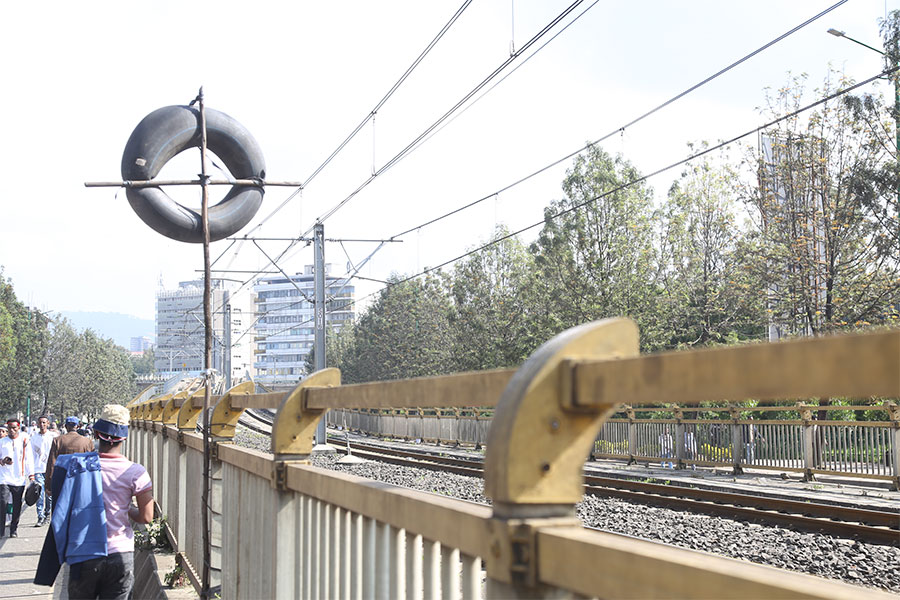
Fortune News | Jul 15,2023
On a Friday, I happened to be at an old friend’s house as he invited me for lunch. I accepted provided that he accepted my invitation to a theatre show that day’s evening with his family. Unbounded emotions were unleashed, as it was quite a while since we met. I arrived as he was engaged in what I had thought looked unproductive sparring at first with his young daughter. It was an argument between them on social media memes, which was liked and shared with him from her.
In the meme, a young girl argued in a quest to prove whether it was only after she was born that reality gained any colours and that everything before then has been in black-and-white, as the case was in most recordings of the time.
I was a quiet watcher, as personal, true life tales, as well as amazing coincidences, started to flow from both to justify their particular stance. Most of my friend’s arguments looked of little interest to anyone but nostalgia buffs, first, yet not as it seemed.
It was then I brought to his attention the word ”nerd” from author and storyteller, Dr. Seuss. He made up the word nerd in his children’s 1950 book, “If I Ran the Zoo.” It pictured a thin, cross, humanoid creature, reportedly picked on by small kids and within a decade became a term for a socially inept, though often intelligent, person. Life imitates art, and so does historical memory.
The theatre was “Misteru,” written by Alehegne Birhane and directed by Tesfaye Gebremariam. It is a portrait of a probe, the observance of its rubrics following a charge in a rural Ethiopian village and its execution amidst its emotional observers. Young and promising artists play it in the procedural aspect of a criminal case. There are defendants, speakers for the defendant and the plaintiff, the prosecutor and presiding magistrates, jurors and witnesses and character witnesses. It seems to be a semi-improvisational piece that stands sparklingly alive on the stage.
It was bold, satirical and harmonious. It was a great time we shared with my friend’s family. It was a warming evening to the cold and rain outside. In the theatre, we were so few that it was almost a shame and yet the actors performed as though the auditorium was full. It is high time to probe the secret why this brave theatre is short of a commercial breakthrough.
However, it is true that theatre is what happens in the auditorium. That is to say, factors bearing societal realities in view of the high-tech, internet-driven realities of life that make us solitary and sullen, there is a need for practical accounting.
I arrived at my house as I continued with my philosophy with cascades of events bidding as a paramount narrative of the day. Art has the power of colouring the way we remember the past. It is the same with young people’s early childhood assumptions that reality in the time when video was by and large screened or streamed in black-and-white was also black-and-white. Just consider then how the plays of Shakespeare or old Greek stories also affect how we imagine those times to have been like.
It is precisely for this reason, nonetheless, that we need to tell stories. Historical facts are crucial so that we learn and maintain important records. But stories tell us what it was like to be alive in those times, how it felt and why. It is how we know what shade of colour life was and how the human condition is still perceptible through the outlines.
PUBLISHED ON
Sep 03,2022 [ VOL
23 , NO
1166]


Fortune News | Jul 15,2023

My Opinion | Dec 30,2023

Life Matters | Apr 17,2020

Agenda | May 13,2023

Radar | Oct 01,2022

Commentaries | Aug 25,2024

Fortune News | Feb 10,2024

Radar | Jan 28,2023

Fortune News | Sep 03,2022

Radar | Dec 01,2024

Dec 22 , 2024 . By TIZITA SHEWAFERAW
Charged with transforming colossal state-owned enterprises into modern and competitiv...

Aug 18 , 2024 . By AKSAH ITALO
Although predictable Yonas Zerihun's job in the ride-hailing service is not immune to...

Jul 28 , 2024 . By TIZITA SHEWAFERAW
Unhabitual, perhaps too many, Samuel Gebreyohannes, 38, used to occasionally enjoy a couple of beers at breakfast. However, he recently swit...

Jul 13 , 2024 . By AKSAH ITALO
Investors who rely on tractors, trucks, and field vehicles for commuting, transporting commodities, and f...

Jul 5 , 2025
Six years ago, Ethiopia was the darling of international liberal commentators. A year...

Jun 28 , 2025
Meseret Damtie, the assertive auditor general, has never been shy about naming names...

Jun 21 , 2025
A well-worn adage says, “Budget is not destiny, but it is direction.” Examining t...

Jun 14 , 2025
Yet again, the Horn of Africa is bracing for trouble. A region already frayed by wars...